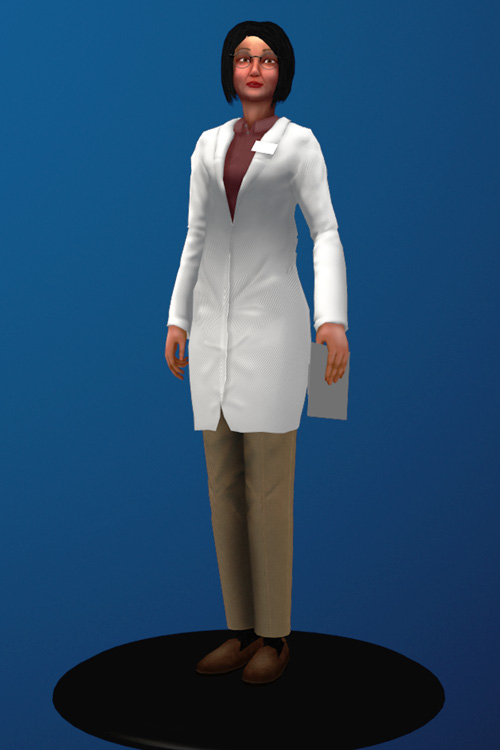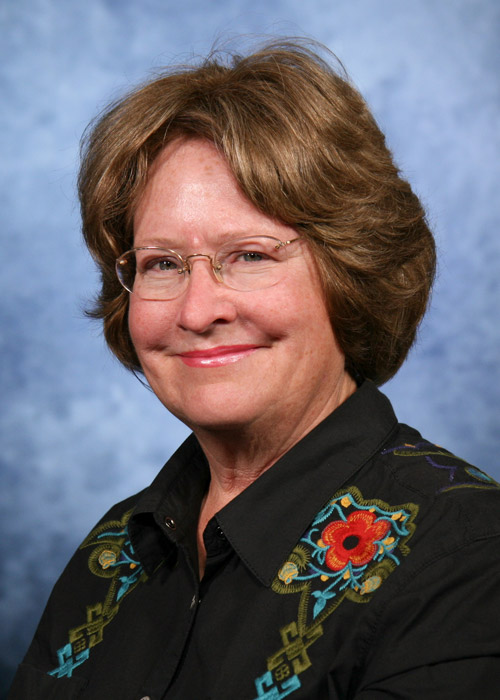Simulation Lab Works To Expand Potential of Virtual Instruction
By: Phil Roth | Dec. 2, 2020

Even after the COVID-19 pandemic is over, learning remotely through virtual human instruction could become commonplace, according to a University of Texas at Dallas professor. With nearly $1 million in national and local grants, Marjorie Zielke PhD’07 is developing a platform that will deliver virtual teaching via augmented reality and holograms.
“The need for high-fidelity virtual teachers is compelling and certainly growing,” she said. “Emergent virtual teachers can be delivered at home, in schools, in special situations, in a variety of languages and with specific skill sets.”
Zielke, research professor and director of the Center for Simulation and Synthetic Humans, recently won the $20,000 5G Grand Challenge from the Tech Titans, the largest technology trade association in Texas. She also is part of a UT Dallas team that has been awarded a three-year, $750,000 grant from the National Science Foundation (NSF) and three $10,000 grants from the NSF’s U.S. Ignite/Smart and Connected Communities. Another NSF grant of $150,000 was awarded to a partnership that includes Zielke’s lab, the Richardson Independent School District (RISD) and Methodist Richardson Medical Center.
According to Zielke, virtual teaching will work well in specialty subjects or for vocational training, such as in the health care professions. That is the thrust of her partnership with RISD and Methodist Richardson. She said augmented reality teaching helps young students not only learn technical skills, but also provides social/emotional training.

“The need for high-fidelity virtual teachers is compelling and certainly growing. Emergent virtual teachers can be delivered at home, in schools, in special situations, in a variety of languages and with specific skill sets.”
Marjorie Zielke PhD’07, research professor and director of the Center for Simulation and Synthetic Humans at UT Dallas
“These 18-year-olds could receive a health care certificate and end up in hospitals seeing a lot of tragedy immediately. This could eventually affect turnover; they need even more training for resiliency,” Zielke said. “These students know technically what to do, but they’re not getting enough humanistic training. That’s one of the key elements we’re working on. It’s what makes this research different.”
Zielke’s team is developing emotive virtual reality patients, teachers and doctors, for example, which will allow students to improve their patient communication skills. The virtual humans possess a lifelike ability to have conversations and convey emotion, which Zielke said is particularly important in the patient-physician relationship process. She said virtual patients also can exhibit symptoms to help health care students improve their nonverbal communication skills, while virtual peers can share their knowledge as well.
At the Speed of Bright
UT Dallas has earned a reputation for incredibly bright students, innovative programs, renowned faculty, dedicated staff, engaged alumni and research that matters. Read stories about more of the University’s bright stars.
“Peer learning is such an important component,” she said. “Virtual reality students can fill in an important gap that many students can’t get — especially now.”
Zielke said virtual learning during the pandemic and the expansion of 5G wireless technology both have contributed to a speedier path for augmented reality learning. She said the Tech Titans award helps her grow community support for the research — connecting educators, business leaders and technology experts.
“It’s a tremendous opportunity for us to actually take some of the research that we’re doing and to accelerate that work to get it out into the marketplace as these 5G networks are coming on board,” Zielke said. “With all these factors coming together, our vision is to create a true hologram experience and an environment where the virtual entities and the real entities work closely together.”
Media Contact: Phil Roth, UT Dallas, 972-883-2193, phil.roth@utdallas.edu, or the Office of Media Relations, UT Dallas, (972) 883-2155, newscenter@utdallas.edu.





